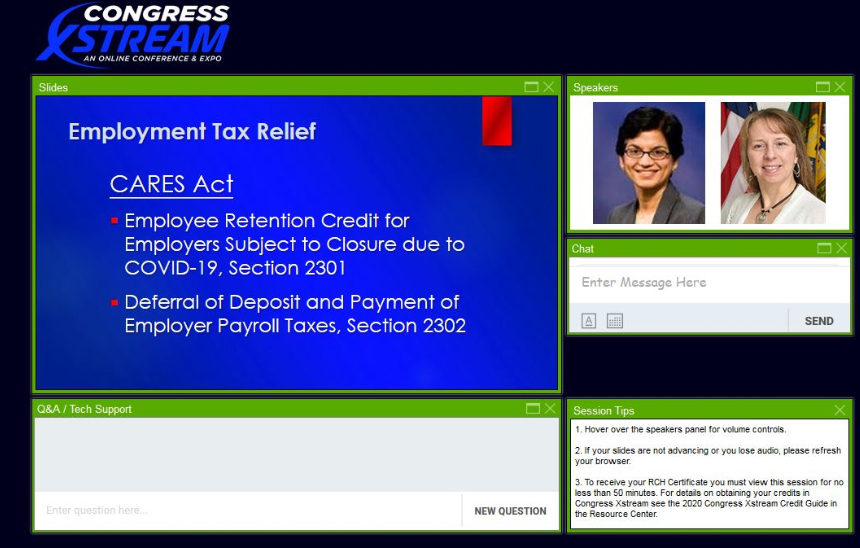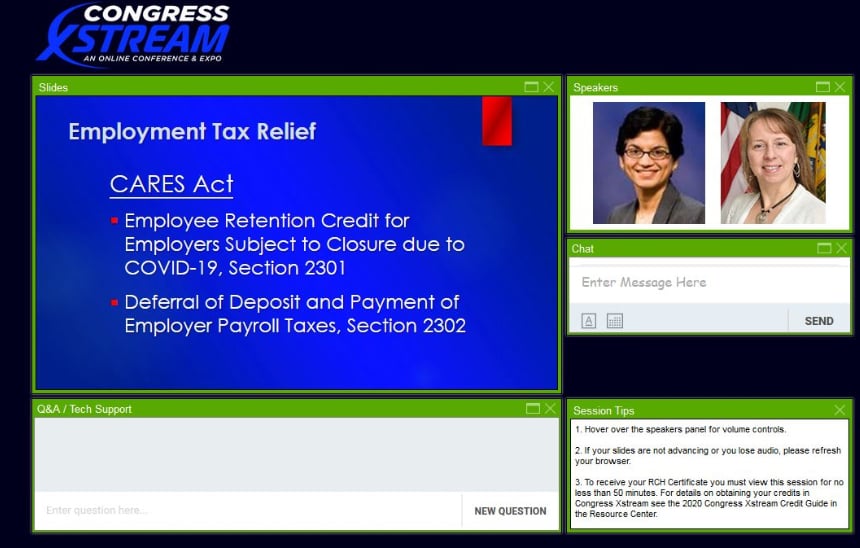
Kiko Martinez
June 2, 2020
IRS Leaders Discuss ‘Learning From the Top’ with Congress Xstream Attendees


The special presentation “Learning From the Top” introduced Congress Xstream attendees to two IRS leaders, who discussed some of their organization’s responsibilities during the COVID-19 outbreak and to break down the legislative provisions of relief packages provided to businesses and individuals.
Representing the IRS during the virtual presentation were Sunita Lough, Esq., Deputy Commissioner for Services and Enforcement at the IRS, and Janine Cook, Esq., Deputy Chief Counsel, Tax Exempt and Government Entities Division at the IRS.
Lough started her presentation by sharing how the IRS, like most businesses in the United States, has seen some incredible challenges since COVID-19 began.
“We were really facing unique circumstances,” she said. “We had a number of people who were not telework ready. We have started opening offices in Kentucky, Utah, and Texas.”
During this time, the IRS was also tasked by the federal government to send out $268 billion in relief to Americans through the Coronavirus Aid Relief and Economic Security Act (CARES Act). The IRS also had to implement the Families First Coronavirus Response Act (FFCRA).
“We set [the CARES Act] up in 18 days,” Lough said.
Cook then broke down both acts and how employees across the country are covered, including tax credits for providing paid sick leave and expanded family and medical leave under the FFCRA. Provisions in the CARES Act include the Employee Retention Credit and the deferral of the employer’s share of social security taxes.
“We’ve issued a lot of FAQs like what it means to be fully or partially suspended [because of COVID-19]," Cook said. “We’ve had a lot of questions about essential and non-essential businesses. We have an FAQ that explains that if a restaurant is open but have to close their in-room dining, they are considered partially suspended.”
This is important because businesses that have their operations fully or partially suspended may be entitled to the Employee Retention Credit.
IRS representatives said they have already anticipated that credit claims on the Form 941-X would have to be corrected.
“Claims can be made, for example, if an employer did not realize they were entitled to the payment or if they reported it and messed up on the amount,” Lough said.
Lough and Cook also discussed how the IRS is working hard to become more digital in the 21st century. It’s a challenging task since privacy with taxpayer information is a huge issue.
“We have a long way to go on that,” Lough said. “We’ve started communicating to taxpayers through email, but we don’t want to use unsecured channels.”
Martha Baxter, Senior Private Equity Consultant for PayTech, Inc., said she took a lot of notes during the presentation and will take Cook and Lough’s advice on which IRS publications payroll professionals should seek out for more information.
“They gave great resources for deeper dives,” she said.




